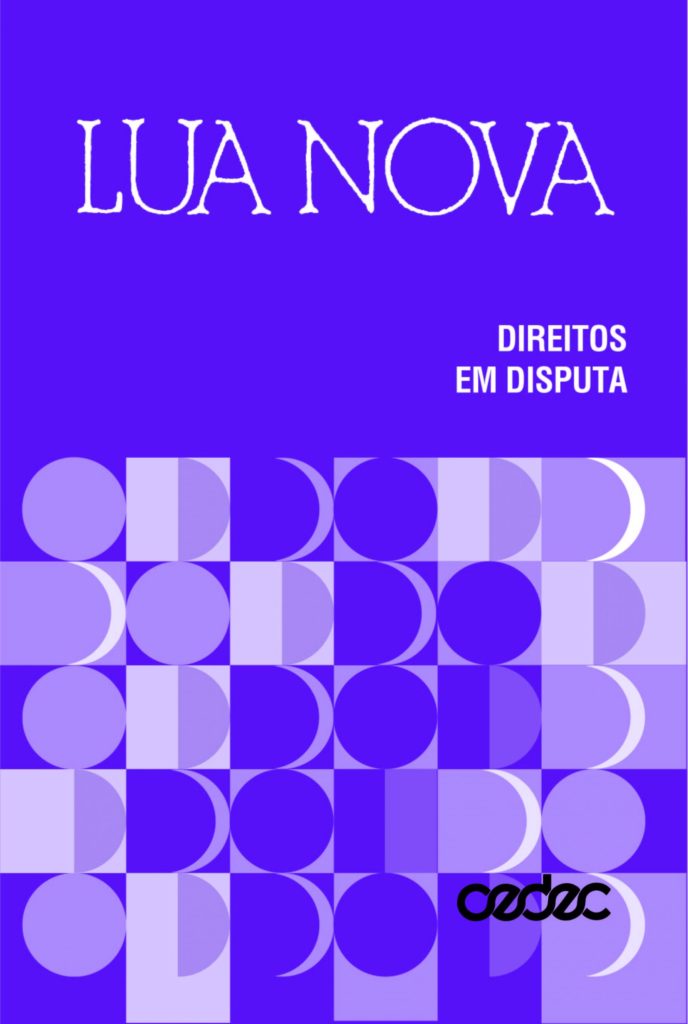Romina Rekers1
5 de novembro de 2025
***
Este escrito compõe a Série Especial do Boletim Lua Nova, em conjunto com pesquisadores e pesquisadoras vinculados à rede internacional Justice in the XXI Century: A Perspective from Latin America (JUSTLA). O projeto, coordenado pela Universidade de Catania (Itália) e financiado pela União Europeia no âmbito da ação HORIZON–Marie Skłodowska-Curie Staff Exchanges, reúne 148 integrantes de 18 instituições da América Latina e da União Europeia.
Os escritos são um convite a atravessar diferentes territórios do conhecimento para (re)pensar a justiça no século XXI. Ao longo da série, o JUSTLA promove um diálogo entre pesquisas desenvolvidas em diferentes contextos e abordagens, de modo que o leitor e a leitora poderão acompanhar um movimento no qual ideias, contextos e práticas se entrelaçam para reinventar, no presente, o sentido da justiça. Os textos do Especial podem ser conferidos aqui.
***
In 2021, on The Ellen DeGeneres Show, the host opened an interview with what seemed like a heartwarming story: a baby had just been born on a flight to Hawaii. The mother, Lavi Mounga, had no idea she was pregnant. Luckily, a doctor, a medical assistant, and three nurses were on board and helped her deliver the baby. The audience cheered.
Mounga told Ellen that she had felt a bit unwell at the airport—just a stomach ache, she thought. During the flight, she couldn’t sleep, got up to go to the bathroom, and began to feel strong cramps. She stayed there for a while until her water broke, though she didn’t recognize it as such. She fainted, and when she regained consciousness, her newborn son was in her arms.
“Wait! So you fainted, woke up, and there was a baby?” Ellen exclaimed, as the audience laughed.
The institutional response to such events can differ dramatically in other contexts, as shown in the film Belén, directed by Dolores Fonzi. The film tells the story of a young woman in Argentina who, in 2014, went through an experience similar to Lavi’s—but instead of applause, she faced prison. After unexpectedly giving birth in the bathroom of a public hospital in the northern province of Tucumán, Belén was detained and charged with aggravated homicide.
Her case became a national cause, mobilizing feminist movements across Argentina at a time when abortion was still illegal, with some exceptions. The film centers on the work of feminist lawyer Soledad Deza (played by Fonzi herself), whose defense strategy marked a turning point. While the public defender had accepted the homicide charge and merely sought a reduced sentence—arguing Belén had acted under the “puerperal state”—Deza challenged the accusation entirely, exposing how gender and class biases shaped judicial reasoning.
When Concepts Are Missing
Belén’s story is also one of epistemic resistance (Medina, 2013)—a struggle to make sense of experiences that existing concepts fail to describe. A similar story underscores the absence of a term for what we can only recently call obstetric violence (Pickles, 2023). Although Belén was also a victim of obstetric violence, there is still no concept that fully names and explains the type of events experienced by her, Lavi, and many others.
The absence of a concept to understand and communicate these experiences constitutes a form of epistemic injustice, defined by philosopher Miranda Fricker (2007, 2017) as hermeneutical injustice. This type of injustice occurs when people cannot make sense of their experiences because society lacks the words or concepts to describe them. The gap in interpretive and conceptual resources, which extends to medical and judicial practice, stems from the lack of opportunities for vulnerable groups to develop conceptual resources to communicate what they live through. Hermeneutical injustice has affected, for example, victims of harassment until concepts were developed that allowed them to report their experiences.
Belén’s lawyer and the feminist movements that supported her were aware of this hermeneutical injustice affecting many birthing people’s experiences. For this reason, dozens of experts and organizations submitted amicus curiae briefs, providing interpretive frameworks to help judges make the right decision despite the rigidity of the law in addressing the diversity of obstetric experiences.
The book Dicen que tuve un bebé (They Said I Had a Baby) (Orrego, Carrera & Saralegui, 2019) contributes to this story of epistemic resistance by presenting similar cases, such as that of Patricia, a victim of gender-based violence. Due to chronic abuse, Patricia came to feel that the pain in her body did not affect her. She dissociated from her body to keep going. She was pregnant multiple times without knowing until the moment she encountered a newborn. Patricia died at 40, imprisoned and strapped to a hospital bed while serving her sentence for aggravated homicide following a rare perinatal event in which the newborn died.
The lack of a concept—and the fact that these obstetric events often occur outside health facilities—contribute to the absence of data on their quantity and frequency. It is reasonable to assume that, historically, such cases were more common, given the lack of access to healthcare, sex education, and pregnancy testing in the past. However, current and future scenarios driven by climate change, displacement, pandemics, and conflict may lead to an increase in the number of cases. Lack of sex education, restrictions on access to safe abortion, obstetric violence, and the absence of anonymous delivery may also contribute to the rise of such events.
Regardless of their rarity, the importance of addressing these perinatal events lies in the fact that many of their causes are rooted in structural inequalities, institutional injustices, and context-specific forms of oppression. Developing a concept to describe obstetric events like these, even if rare, is necessary so that society and the healthcare system can provide adequate responses to birthing people and reform medical and judicial practices. The film Belén joins this narrative as another milestone in the ongoing history of epistemic resistance among birthing people.
Official movie trailer: https://www.youtube.com/watch?v=gQQdv9k6t0w
* Funded by the European Union. Views and opinions expressed are however those of the author(s) only and do not necessarily reflect those of the European Union or HORIZON-MSCA-2023-Staff Exchanges JUSTLA – Justice in the XXI Century: A Perspective from Latin America, Grant Agreement: 101183054. Neither the European Union nor the granting authority can be held responsible for them.
** Este texto não reflete necessariamente as opiniões do Boletim Lua Nova ou do CEDEC. Gosta do nosso trabalho? Apoie o Boletim Lua Nova!
References
FRICKER, M. Epistemic injustice: Power and the ethics of knowing. Oxford: Oxford University Press, 2007.
FRICKER, M. Evolving concepts of epistemic injustice. In: KIDD, I. J.; MEDINA, J.; POOLE, G. (org.). The Routledge handbook of epistemic injustice. London: Routledge, 2017. p. 53–60.
MEDINA, J. The epistemology of resistance: Gender and racial oppression, epistemic injustice, and the social imagination. Oxford: Oxford University Press, 2013.
ORREGO, C.; CARRERA, M.; SARALEGUI, M. Dicen que tuve un bebé. Buenos Aires: Editorial Biblos, 2019.
PICKLES, C. “Obstetric violence”, “mistreatment”, and “disrespect and abuse”: Reflections on the politics of naming violations during facility-based childbirth. Hypatia, v. 38, n. 3, p. 628–649, 2023.
- Postdoctoral Researcher, Goethe University Frankfurt. ↩︎






